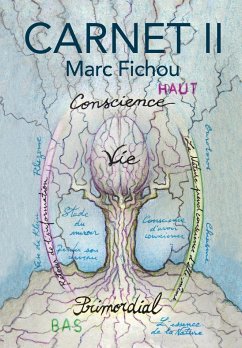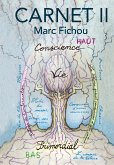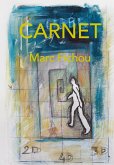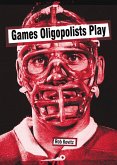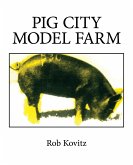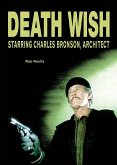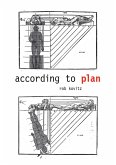French-American artist Marc Fichou takes us on a fascinating journey into his creative process with his second notebook, Carnet II, one of many he has filled with the thoughts, puzzles, and lines of inquiry that have guided his work over the years in a variety of media, from video installation to sculpture and painting. This book lies in between image and text but also philosophy and art, even memoir and fiction. Do we look at it or read it? Or do we practice both at once, wrestling with the differences between seeing and thinking, contemplation and action, beauty and truth? Fichou takes this ambivalent experience as a starting point for explorations of a personhood that, defined since Descartes as a subjective "inner life" (core or essence) we control and express, feels increasingly decentered, networked, and cybernetic. At the interfaces of the human and the machinic, the organic and the technical, he looks to the imaginative possibilities as well as the dangers that exist for people who no longer exactly know themselves through traditional categories of identity, intention, autonomy. . .and even art itself. *** L'artiste franco-américain Marc Fichou nous invite à un voyage fascinant au sein de son processus créatif avec son deuxième Carnet, un parmi les nombreux qu'il a rempli de pensées, questionnements, et recherches qui ont guidé son travail sur les années dans une variété de médiums, de l'installation vidéo à la sculpture et la peinture. Ce livre se situe entre l'image et le texte, la philosophie et l'Art, la nature et l'artifice, l'humain et la technique (sans mentionner le français et l'anglais), et même entre le journal intime et la fiction. Le regarde-t-on ou le lit-on? Ou pratiquons-nous les deux à la fois, confrontant les différences entre voir et penser, la contemplation et l'action, la beauté et la vérité? Fichou prend cette expérience ambivalente comme le point de départ d'explorations d'une identité individuelle, définie depuis Descartes comme vie intérieure subjective (noyau ou essence) que nous contrôlons et exprimons, qui se ressent de plus en plus comme décentrée, en réseau et cybernétique. Son livre est rempli de paradoxes, qui pour lui témoignent de ce changement spatio-temporel: des rubans de Moebius, des ensembles infinis, des hypercubes, des formes en tore, des boucles de rétroaction; tous pointent vers les possibilités émergentes qui existent pour ceux qui ne se reconnaissent plus tout à fait dans les catégories traditionnelles de l'identité, de l'intention, de l'autonomie ... et d'ailleurs de l'art lui-même.
Hinweis: Dieser Artikel kann nur an eine deutsche Lieferadresse ausgeliefert werden.
Hinweis: Dieser Artikel kann nur an eine deutsche Lieferadresse ausgeliefert werden.

